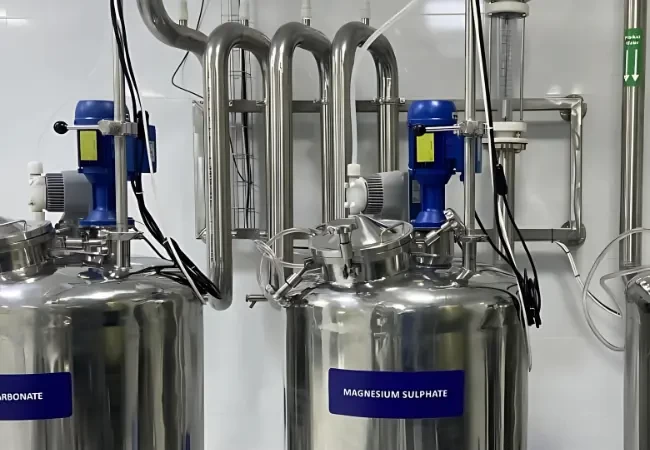Mineral Dosing System Supplier
Mineral dosing in water treatment refers to the addition of specific minerals or chemicals to water to adjust its composition, address particular quality issues, or meet certain treatment goals. This process is important for optimizing water quality, ensuring compliance with standards, and protecting infrastructure. Here’s a detailed look at the various aspects of mineral dosing:
Purpose of Mineral Dosing
- pH Adjustment: To correct the pH of the water to a desirable level, typically between 6.5 and 8.5, depending on its intended use.
- Corrosion Control: To prevent corrosion of pipes and distribution systems, which can lead to leaks, failures, and contamination of the water supply.
- Scaling Prevention: To prevent the formation of scale deposits that can clog pipes and equipment.
- Water Softening: To reduce the hardness of the water, which can cause scaling and affect soap efficiency.
- Taste and Odor Improvement: To enhance the aesthetic quality of water by improving taste and reducing undesirable odors.
Key Factors for Effective Mineral Dosing
- Measurement and Control: Accurate measurement and control of dosages are critical to achieving the desired water quality. This typically involves monitoring equipment to measure parameters such as pH, hardness, and chemical concentrations.
- Compatibility: The chosen minerals or chemicals must be compatible with the existing treatment processes and the overall water chemistry.
- Safety and Handling: Proper safety measures and handling procedures are necessary when working with chemicals to avoid health hazards and environmental impacts.
- Regulatory Compliance: Dosing practices must comply with local and national water quality regulations and standards to ensure safety and effectiveness.

Water Treatment Systems
- Reverse Osmosis plant
- Multi Media Filter
- High Rate Solid Contact Clarifier - HRSCC
- PRO ATHENA
- BEV Systems
- PRO MINI
- HERO Modular Systems
- SeaTECH Series
- SKYLINE Seawater RO
- SeaPRO E-Series
- Turbidity Treatment
- Iron Removal
- Silica Removal
- Seawater Desalination
- Brackish Water Reverse Osmosis (RO)
- Mixed Bed Deionizer
- Electrodeionization (EDI)
- Ozonation & UV
- Closed Circuit Reverse Osmosis
- Sewage Treatment Plant (STP)
- Effluent treatment Plant (ETP)
- Odour Control System
- Anaerobic Reactor (UASBR)
- DAF - Dissolved Air Flotation
- MBBR-Effluent treatment
- Membrane Bio Reactor
- Continuous Fill Batch Reactor
- Sequential Batch Reactor (SBR)

